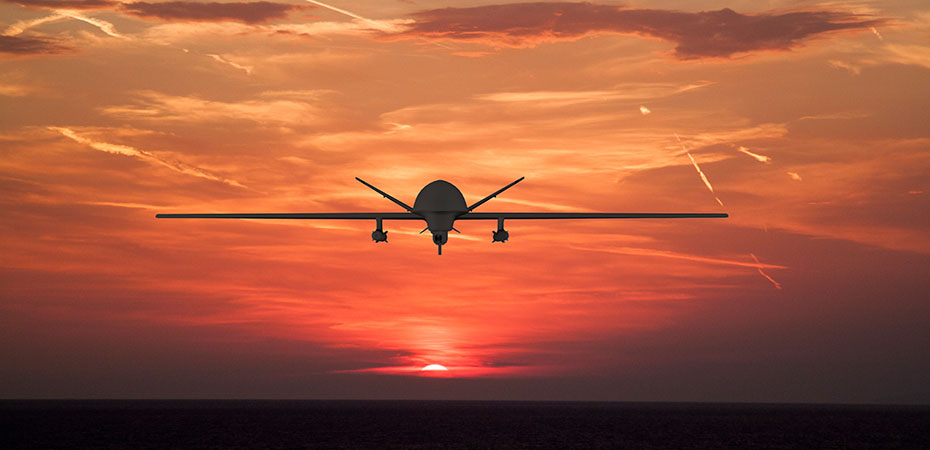Graham S. Ragan
Partner
Leader - Supreme Court of Canada Services Group
Article
8
Promised for a year, the federal government released Canada's new defence policy, Our North, Strong and Free: A Renewed Vision for Canada's Defence, on April 8, 2024.

Canada is facing new and evolving security threats, including climate change and its impact on the Artic, threats from Russia, China, and others to democracy and the international order, and the deployment of new and disruptive technologies that are rapidly redefining the nature of conflict.
The most urgent and important task is to protect Canada's sovereignty in the Arctic and northern regions, which is also NATO's northern and western flank. This also includes the need to complement and build on investments already made on continental defences under our $38.6 billion NORAD modernization plan.
Budget 2024, which was presented on April 16 to the House of Commons by the Deputy Prime Minister and Minister of Finance Chrystia Freeland, proposes foundational investments to ensure that Canada is ready to respond to global threats and protect the well being of Canadian Armed Forces members.
The investments offer expenditures of $8.1 billion over the next five years starting in 2024-2025, and $73 billion over the next 20 years to the Department of National Defence ("DND"), the Communications Security Establishment ("CSE") and Global Affairs Canada ("GAC"). This also includes $1.2 billion over 20 years to support the ongoing procurement of critical capabilities, military equipment and infrastructure through DND's Capital Investment Fund.
Canada's defence spending to GDP ratio is expected to increase from 1.33 per cent to 1.76 per cent by 2029-30, and exceed the NATO target that 20 per cent of defence spending should be directed toward equipment.
New investments proposed in the policy include:
The government is also committing to "explore options" for a number of additional capabilities, including:
The government acknowledges that this policy will only be effective with real procurement reform, something that has proven elusive in recent decades, stating:
"To accelerate a process that takes too long to deliver the capabilities we need, we will adapt our defence procurement system to a faster, more competitive age, including through a renewed relationship with Canada's defence industry, and a focus on innovation with trusted partners."
The defence policy update underscores the importance of "an agile defence procurement system."
Public Services and Procurement Canada, National Defence, Industry, Science and Economic Development Canada and the Treasury Board Secretariat have launched a review of the defence procurement system.
The defence policy update promises to change:
"Defence's approach to working with industry, innovators, and researchers — moving away from transactional approaches for acquiring capabilities to sustained strategic partnerships founded on transparency and trust."
The objective is to facilitate rapid onboarding of new technologies, and deeper integration with allied supply chains and innovation networks, securing a reliable supply from Canadian industry.
The policy announces plans for the implementation a Canadian National Security Strategy, an integrated review and update of Canada's security, intelligence, defence, and diplomatic policies, every four years. To align with this change, Defence is also moving to a four-year defence policy review cycle to assess implementation, adjust the plan as required, and make further decisions around capabilities and funding as needed. The review cycle is designed "to provide clarity and transparency to our partners in defence: Canadians, our allies, and Canada's defence industry."
To complement the procurement system review, Defence will work with federal partners on a Defence Supply Chain Resilience Strategy with the aim of developing solutions to mitigate risks throughout the supply chain, from critical commodities and intellectual property to manufacturing and delivery. Canada will also participate in the newly established NATO Innovation Fund, which will offer additional funding streams in artificial intelligence, big-data processing, quantum-enabled technologies, autonomy, biotechnology and human enhancement, novel materials, energy, propulsion and space capability for innovative Canadian entrepreneurs.
The government describes investments under the defence policy update as significant step forward in Canada's efforts to meet its NATO commitment of two per cent. However, the 20-year timeline of the new policy, and the fact that so many of the proposed investments are "to be explored," give experts considerable cause for concern about whether Canada has truly decided to pull its weight.
Regarding the expectations of our NATO allies, U.S. Ambassador to Canada David L. Cohen acknowledged "the policy update represents some of the most significant investments in defense spending in recent Canadian history," and "appears to articulate a substantial down payment toward Canada's pledge to meet its NATO commitment to spend at least two percent of its GDP on defense."
Ambassador Cohen believes the "first Canadian National Security Strategy and the built-in automatic reviews every four years will help Canada continue to target the greatest needs in defense of our homelands, which will inevitably lead to further increases in defense spending."
We would be pleased to address these opportunities and issues with you further.
CECI NE CONSTITUE PAS UN AVIS JURIDIQUE. L'information qui est présentée dans le site Web sous quelque forme que ce soit est fournie à titre informatif uniquement. Elle ne constitue pas un avis juridique et ne devrait pas être interprétée comme tel. Aucun utilisateur ne devrait prendre ou négliger de prendre des décisions en se fiant uniquement à ces renseignements, ni ignorer les conseils juridiques d'un professionnel ou tarder à consulter un professionnel sur la base de ce qu'il a lu dans ce site Web. Les professionnels de Gowling WLG seront heureux de discuter avec l'utilisateur des différentes options possibles concernant certaines questions juridiques précises.